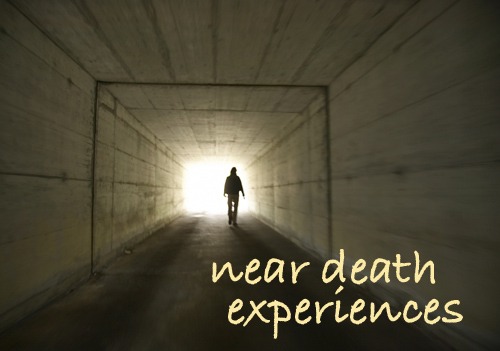
Discussion post I submitted for my Atlantic University TP5020 Course – December 11, 2019
To what extent do you think it is important to provide “scientific evidence,” such as the verifiable aspects of NDEs and prenatal research and Stephenson’s research on reincarnation, for the soul? Why?
The answer to this question depends on what audience we are considering. For me, and what I assume is many of the students currently enrolled in this Master’s based on the posts I’ve seen, very little “scientific” evidence is needed. We are highly intuitive people who are open to concepts like the soul, life after death, spirit guides, NDEs, the continuity of life, mediumship, reincarnation, and a whole bunch more.
However, as students studying transpersonal psychology, which covers the gamut of “woo-woo” topics, it’s imperative that we understand and communicate the scientific basis for such phenomena. We, for the most part, are the believers. It’s not us that needs to be convinced, but it’s “them,” starting with the very field that transpersonal psychology is situated.
For example, Cheryl Fracasso, Bruce Greyson, and Harris Friedman, after covering a significant number of qualitative studies and providing anecdotal evidence regarding Near-Death Experiences (NDEs), note that the American Psychological Association (APA) lumps diagnoses related to NDE into one broad category: “Spiritual or Religious Problem” (2015, p. 372). While the authors suggest that those experiencing NDE “have higher rates of depression and anxiety,” to lump those undergoing such a transpersonal experience under a single, broad heading that includes the word “Problem” is a clear indication of how the primary American psychological organization and author of Diagnostic and Statistical Manual of Mental Disorders (DSM) views spiritual and supernatural phenomena (2015, p. 372).
To think that many if not most of the more than 500 Exceptional Human Experiences (EHEs) identified by Rhea White would be grouped together into a single “Spiritual or Religious Problem” by APA is mindboggling considering all the scientific evidence that’s available, particularly since the 1960s. But this is exactly why we must continue pressing forward with the scientific studies proving the existence of the soul and other phenomena that “mainstream” science has largely ignored for over a century.
People are more open to hearing the truth in this age despite the modern psychological industry, which tends to be cautious and sometimes compromised by big Phrma’s influence in developing their diagnoses. Elliot Benjamin in his study, “Transpersonal Psychology and an Agnostic Experiential Exploration of Mediumship and the Ostensible Phenomenon of Life After Death,” is a good example of a skeptic yet someone who is at least searching. While his personal study ultimately left him questioning the ability of the mediums’ he studied to connect with his deceased brother Fred and led him to discount the possibility of life after death, in the end, it wasn’t due to a lack of evidence (2015, pp. 34-44).
It had to do with his whole “scientific” approach given the fact he was still grieving his brother’s loss and was desperately trying to use psychics to communicate with him, which is why he views the results negatively since those he interviewed “failed” to do so. We are learning a great deal about “intuitive research” in TP5015, yet there is still something to be said for “objective” versus “subjective” influence when it comes to research. The point is that if he were to interview some of the psychics and mediums I know, ones who could help him understand that when a person passes over it’s not like calling them on an iPhone, that it’s very nuanced communication, he would likely be brought around over time. People like Elliot are ready to be persuaded and it’s up to those of us who are studying this material to come up with the scientific basis and personal antidotes to help them to see the truth.
The evidence exists, and a great deal of groundwork has been laid. Much of it, however, is in the positioning and communications. Michael Daniels makes a great point that as traditional and organized religion fades, it’s important for transpersonal psychologists to avoid using words like “soul,” which sounds too much like a “religion, cult, or system of belief.” Rather we should talk about the “transpersonal self or transpersonal identity” (2005, p. 175).
References
Benjamin, E. (2015), “Transpersonal psychology and an agnostic experiential exploration of mediumship and the ostensible phenomenon of life after death,” International Journal of Transpersonal Studies, 34(1-2), p. 34-44
Daniels, M. (2005), Shadow, self, spirit: essays in transpersonal psychology, Imprint Academic: Exeter, UK
Fracasso, C., Greyson, B., and Friedman, H. (2015), “Near-death experiences and transpersonal psychology,” The Wiley Blackwell handbook of transpersonal psychology, pp. 367-381, John Wiley & Sons Ltd: West Sussex, UK.
White, R. (2000), “List of potential EE/EHEs,” Parapsychology Foundation, retrieved from https://ehe.org/display/ehe-pagedc08.html?ID=3